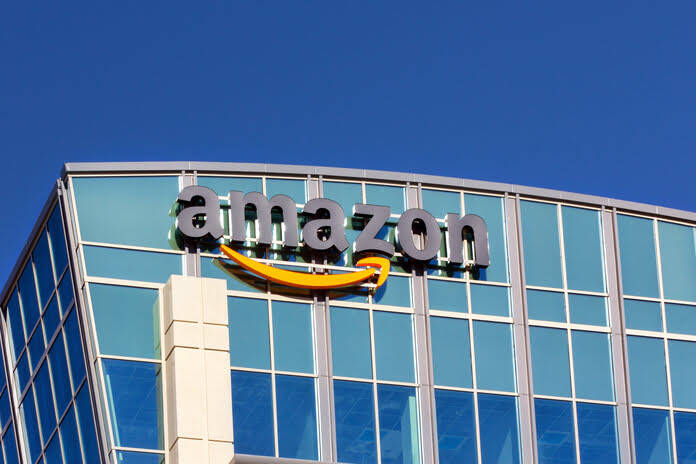Apple Stock (NASDAQ:AAPL)
Apple Inc. (NASDAQ:AAPL) is a tech giant in search of future growth, and in my opinion, it has yet to find a clear path to it. It has outperformed other large technology companies in recent years, but this is likely due to aggressive share repurchases and impressively resilient earnings. However, I believe they are falling behind in terms of developing cutting-edge technology that will dominate the bottom lines of the next decade. Poor positioning on these key developing technologies could have serious consequences for Apple stock long-term valuation, making it more of a consumer staples stock and less of a tech stock.
According to Reality Pro, the AR and VR market could be worth $856 billion by 2031, with a massive CAGR of 41.1%. Apple will enter the AR/VR market with an unannounced Mixed Reality headset, tentatively dubbed the ‘Reality Pro,’ that will reportedly cost up to $3000. Even without knowing any of the specifications, a price like that makes me skeptical. Unless this is an experience that is not only superior to but completely unrivaled by what competitors are offering, it’s unclear whether there is a market for this price point at all. In the current slowdown, when consumers are cutting back on luxuries, the cost is even more of a concern.
However, a budget model appears to be in the works, with a release date of 2024-2025. However, the absence of this budget model at launch appears dubious. Will customers buy a $3000 headset as their first foray into Apple’s VR ecosystem? Apple clearly has a strong brand, but I’m not convinced it’s that strong. The popularity of the product will determine the success of the entire ecosystem to a large extent with VR products, so if the initial model is a flop, it could sink the entire product line.
Interestingly, Apple is working on new software that could help to popularize its MR app ecosystem. The software allows users to easily design apps for themselves, completely code-free, using Siri. This could be a big plus for the Reality Pro, as it provides a unique selling point while also fleshing out a feature that could help justify the high price tag. The success or failure of this feature could have a significant impact on Reality Pro’s ultimate fate.
This low-cost MR model comes at the expense of plans for AR glasses, which have now been postponed indefinitely. The AR play is especially important for Apple because AR glasses could become tomorrow’s smartphones. If this occurs, Apple will need to establish a dominant market share, similar to that of the iPhone, to survive and likely be at the forefront of development.
AR appears to be the natural evolution of Apple products. AR glasses, like smartphones, have utility in everyday life and appear to be easier to scale down to the sleek, aesthetically pleasing design associated with Apple hardware. This is why, in my opinion, Apple should be concerned about the AR development being pushed back.
The Apple Vehicle
It’s difficult to believe, but Apple has had automobile ambitions for more than a decade. Before his death in 2011, Steve Jobs was said to “dream” of creating an iCar. The project has since become a reality, but it has been plagued by nonstop setbacks, including the collapse of a 2018 partnership with Volkswagen (OTCPK:VWAGY). The internal release date has now been pushed back to 2026, and the proposed self-driving capabilities have been reduced. However, these aren’t the only reasons the project was doomed to fail. Self-driving cars rely heavily on AI technology, and the following section discusses why Apple is likely behind the curve in this area.
AI
I am confident that, within the next decade, AI will be the standout technological innovation and, as a result, the driver of economic growth. By 2029, the AI market is expected to be worth $1.394 trillion. ChatGPT has received a lot of attention, but it is the AI Model that has received the most attention because it is so easily accessible to the general public. Similarly, impressive AI models are being developed at a rapid pace, but they are rarely made public. DeepMind, for example, released Gato, a ‘generalist’ AI capable of performing many different tasks and playing games, just last year. Apple appears to be lagging behind competitors in big tech when it comes to AI development.
DeepMind is owned by Google (NASDAQ:GOOG), OpenAI is owned by Microsoft (NASDAQ:MSFT), Meta (NASDAQ:META) owns Meta AI, and Apple owns…Apple Machine Learning Research. It’s safe to say Apple’s AI lab doesn’t have the same level of brand recognition as competitors—which wouldn’t matter if the lab appeared to be of comparable quality. Except, according to some metrics, this does not appear to be the case. The graph below ranks major corporations based on the number of publications accepted into the two most prestigious AI conferences held each year (NeurIPS and ICML). Apple is ranked 13th, trailing many other tech companies but, more importantly, trailing the leaders, Google, Microsoft, and Meta. This is not a perfect predictor of AI research success, let alone AI research that will translate into commercially viable products—but it does indicate which companies are at the forefront of AI research.
The opinions of AI researchers support this data. When asked to rank the top three AI labs in the world, AI researchers generally prefer Google, Meta, and Microsoft, rather than Apple (or labs under their ownership).
Acquisitions Could Be the Solution
Apple could be acquiring potentially undervalued companies in a variety of emerging tech sectors right now. Instead, they use their sizable Free Cash Flow to support their own stock price through share repurchases. This is not necessarily a bad thing; it could be the most prudent strategy; however, I am concerned that they are sleepwalking towards stagnant growth rates in the long run.
Valuation
Apple trades at a forward and trailing P/E ratio of about 23, as shown below, putting it at the upper end of the range for other large technology companies. However, given the company’s strong fourth-quarter earnings and ongoing share repurchases, this premium is probably justified. If my AI expectations are correct and Apple’s other emerging technology plays are mediocre enough to compensate, then their relative premium over the competition may not be justified.
In my opinion, Wall Street has a somewhat optimistic target price for Apple of 168.11, implying a 16.78% increase from current prices. Because I don’t believe it fully reflects Apple’s relatively weak position in emerging technologies, the lower price targets appear more convincing to me.
Bottom Line
Apple is an incredible company with an incredible product line and strong brand loyalty, but I am concerned that its current positioning on emerging technologies and products is significantly weaker than the competition. As a result, I’ll be looking for a lower entry point for Apple stock, or better news in key areas such as AI, VR/AR, and the Apple car project.
Featured Image: Pexels @ Daan Stevens
















